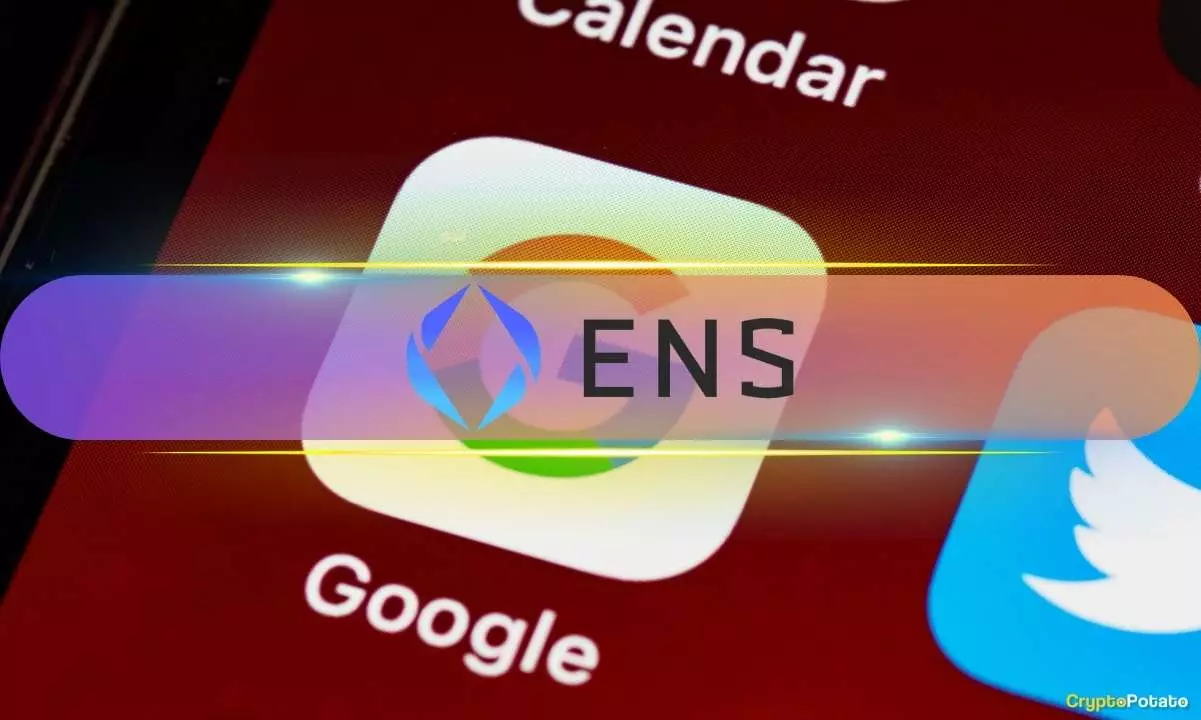In a groundbreaking move, Google has officially integrated the Ethereum Name Service (ENS) into its search engine. This enhancement allows users to search for any .eth domain and view the associated Ethereum (ETH) balances directly in the search results. Announced via an October 9 post by ENS.ETH’s official account, this development signifies a pivotal shift toward making cryptocurrency more accessible to the wider public. By eliminating barriers to information, Google is opening doors for both enthusiasts and newcomers to the world of cryptocurrency.
Originally launched for a limited audience a few months prior, the ENS feature is now universally available to users around the world. Google’s inclusion of this functionality is crucial, given that the cryptocurrency landscape can often appear murky and overly complex for the uninitiated. Nalin, a Web3 official at Google, highlighted another critical aspect of this integration: the alignment with Ethereum faucets on the Sepolia and Holesky test networks. Users can now input their .eth addresses to receive test ETH “drips,” showcasing how Google is investing in the education and engagement of the Web3 community.
In its ongoing pursuit to simplify cryptocurrency usage, ENS also forged a partnership with GoDaddy in February. This collaboration enables the Web3 community to link their .eth names to traditional Web2 domains without incurring additional costs. By reducing the high gas fees that previously discouraged users, this partnership lowers the barriers to entry for individuals curious about Web3 technologies. Such collaborative efforts reflect an increased ambition to mainstream cryptocurrency and NFT practices, positioning them as commonplace rather than specialized knowledge.
The structure and functionality of the ENS shares parallels with traditional internet domains, effectively bridging two distinct technological realms. The ENS allows individuals to transform complex Ethereum wallet addresses into more accessible human-readable names. Instead of sharing lengthy strings of numbers and letters, users can conveniently share names like yourname.eth, thereby enhancing the usability of cryptocurrency. This simplification not only aids communication but also encourages broader adoption as it reduces friction points for new users.
Google commenced its integration of Ethereum addresses back in May 2023, setting the stage for a transformative approach toward how cryptocurrencies are interacted with online. Initially, this enabled users to search for Ethereum addresses and see the related ETH balances directly in search results, eliminating the need to navigate to external blockchain explorers like Etherscan. By March 2024, this support expanded to incorporate ENS domains, allowing searches for prominent Ethereum addresses such as Vitalik.eth and retrieving blockchain information effortlessly. This progressive timeline indicates Google’s long-term commitment to supporting the evolving landscape of cryptocurrencies.
This ENS integration builds on previous initiatives that aimed to demystify the cryptocurrency world and enhance user engagement. As early as 2022, Google introduced features that allowed Ethereum wallet holders to check their balances in search results without requiring external resources. Notably, during the Ethereum Merge event, Google used dynamic visuals, such as animated pandas counting down the transition from a proof-of-work to a proof-of-stake model, to connect with users in a fun and relatable manner. Such initiatives demonstrated not only their proficiency in technological advancements but also their understanding of consumer engagement.
Moreover, in 2023, Google’s updated advertising policy aimed to include “Cryptocurrency Coin Trusts,” allowing products like Bitcoin exchange-traded funds (ETFs) from major finance entities such as BlackRock to surface in relevant queries. This policy change signals not only an acceptance of cryptocurrency’s increasing legitimacy but also serves as an acknowledgment of its burgeoning relevance in the broader financial market.
Overall, Google’s integration of the Ethereum Name Service represents a significant stride toward demystifying cryptocurrencies and enhancing accessibility. By bridging the gap between traditional domains and digital wallets, Google is not only facilitating a more user-friendly experience but also fostering an environment ripe for mainstream adoption. As the lines blur between traditional finance and the wonders of decentralized technology, such initiatives by tech giants pave the way for a more inclusive digital future.

